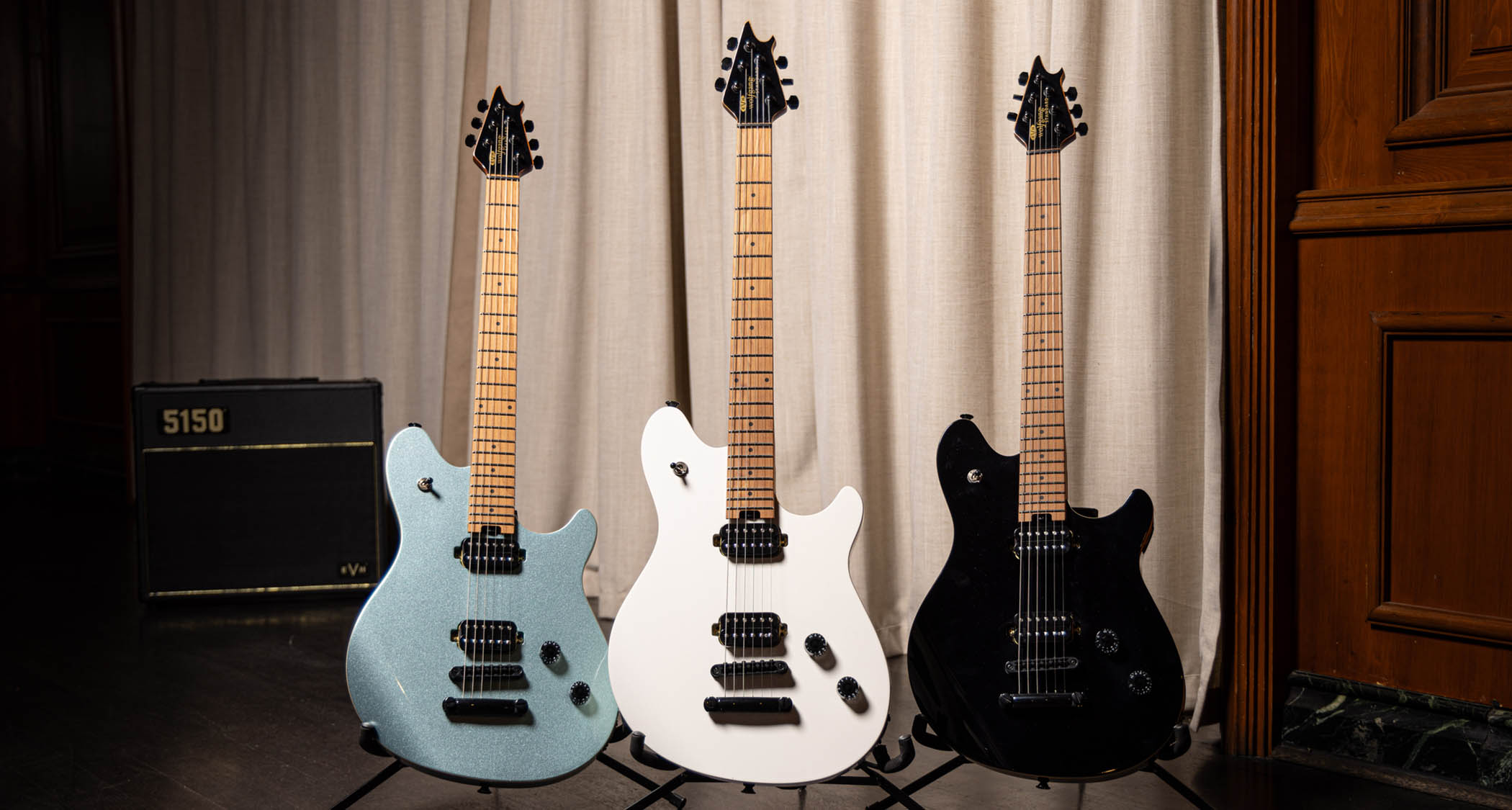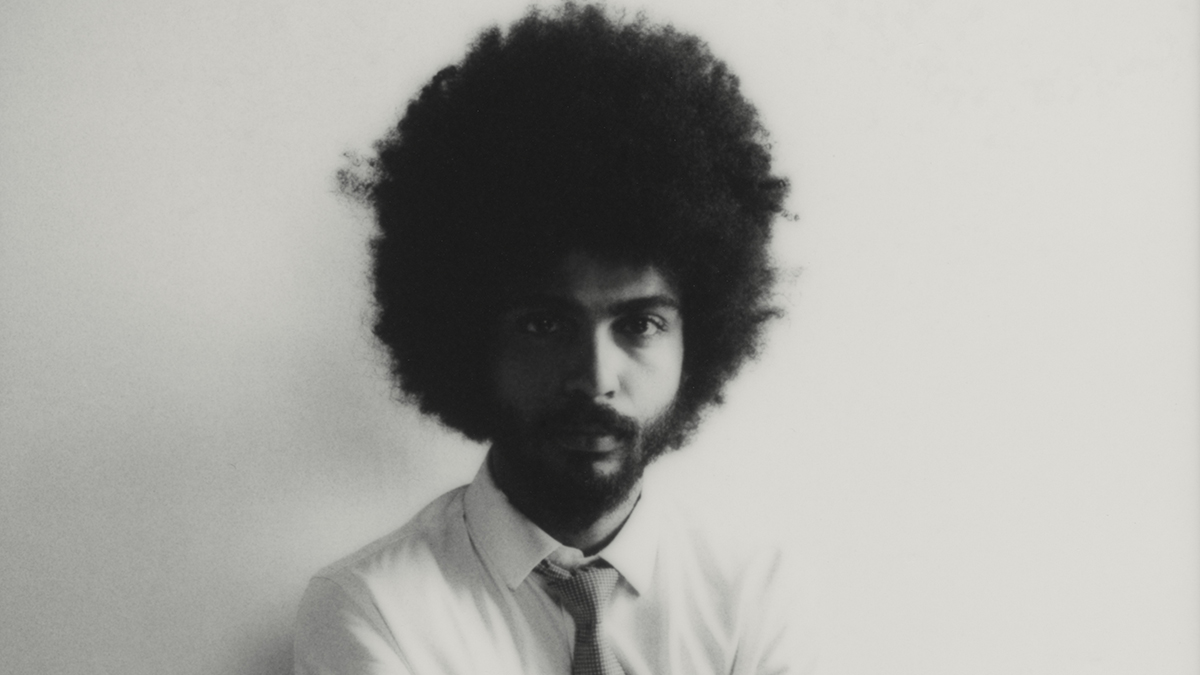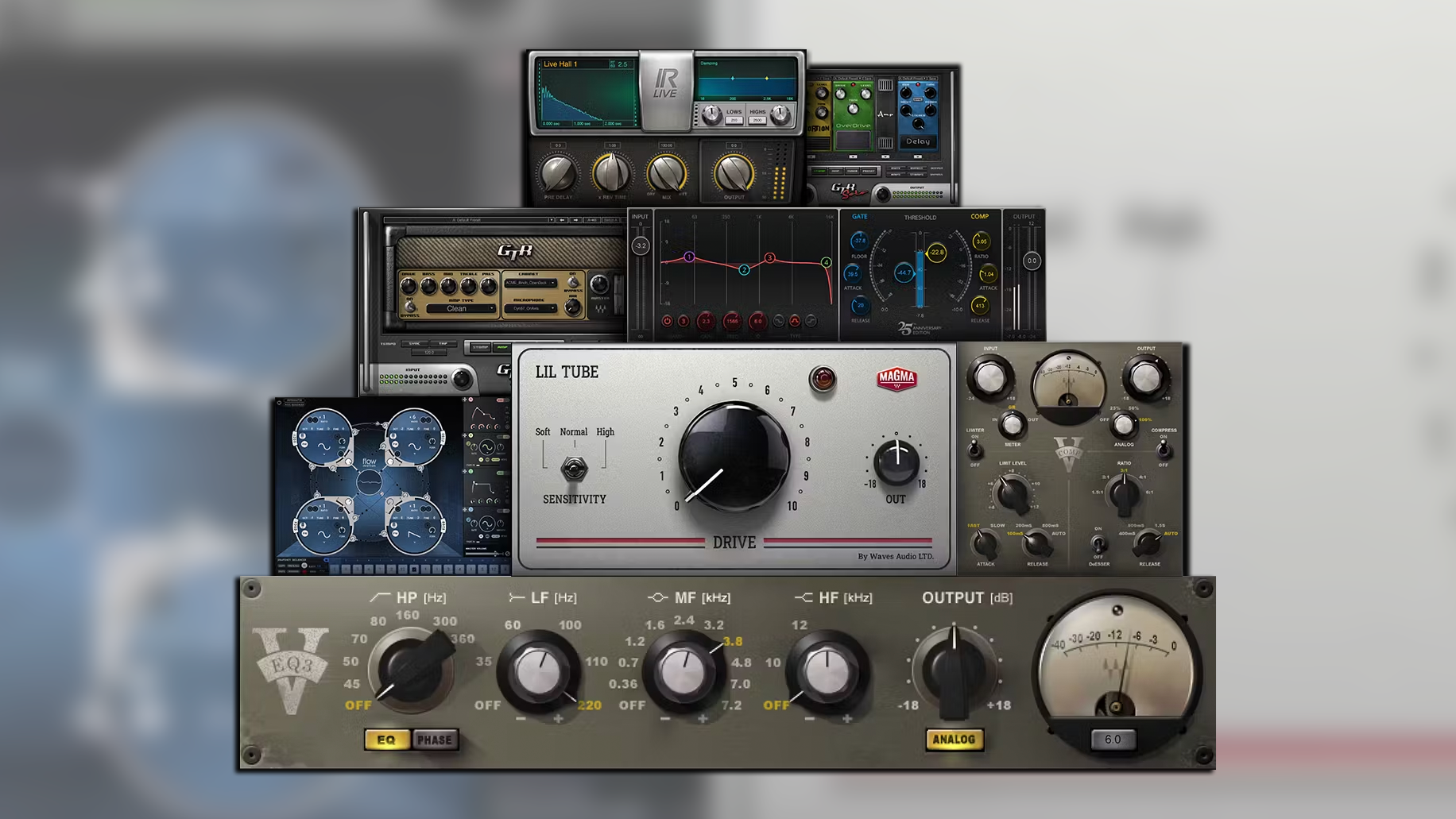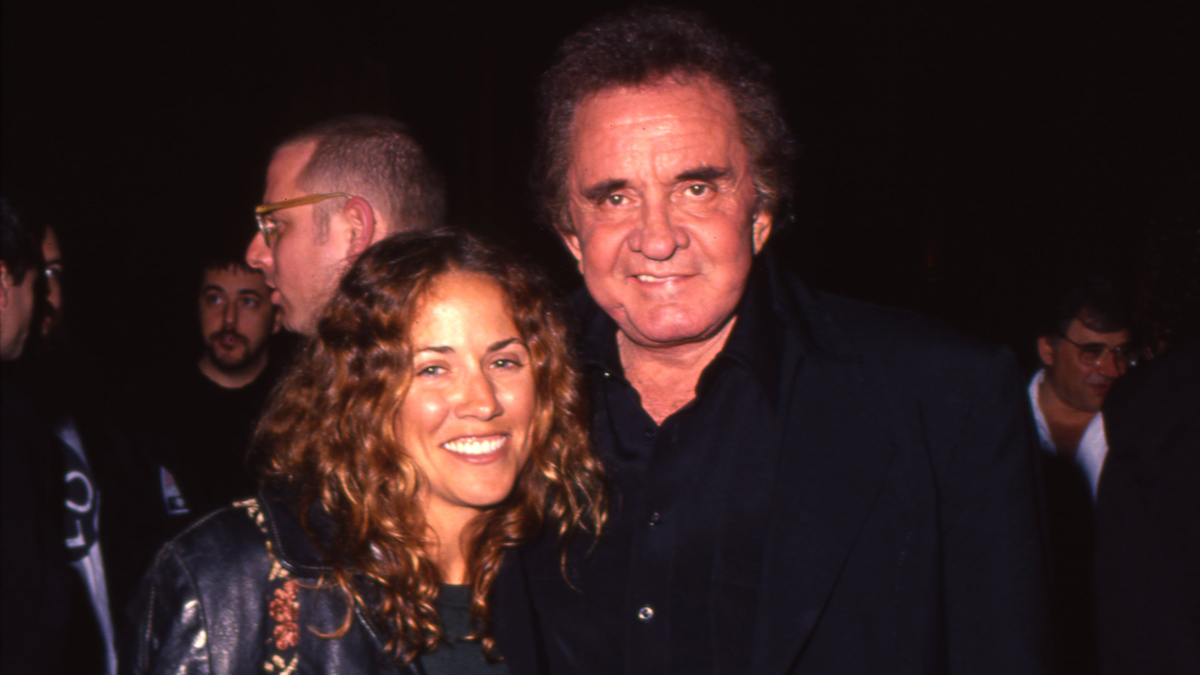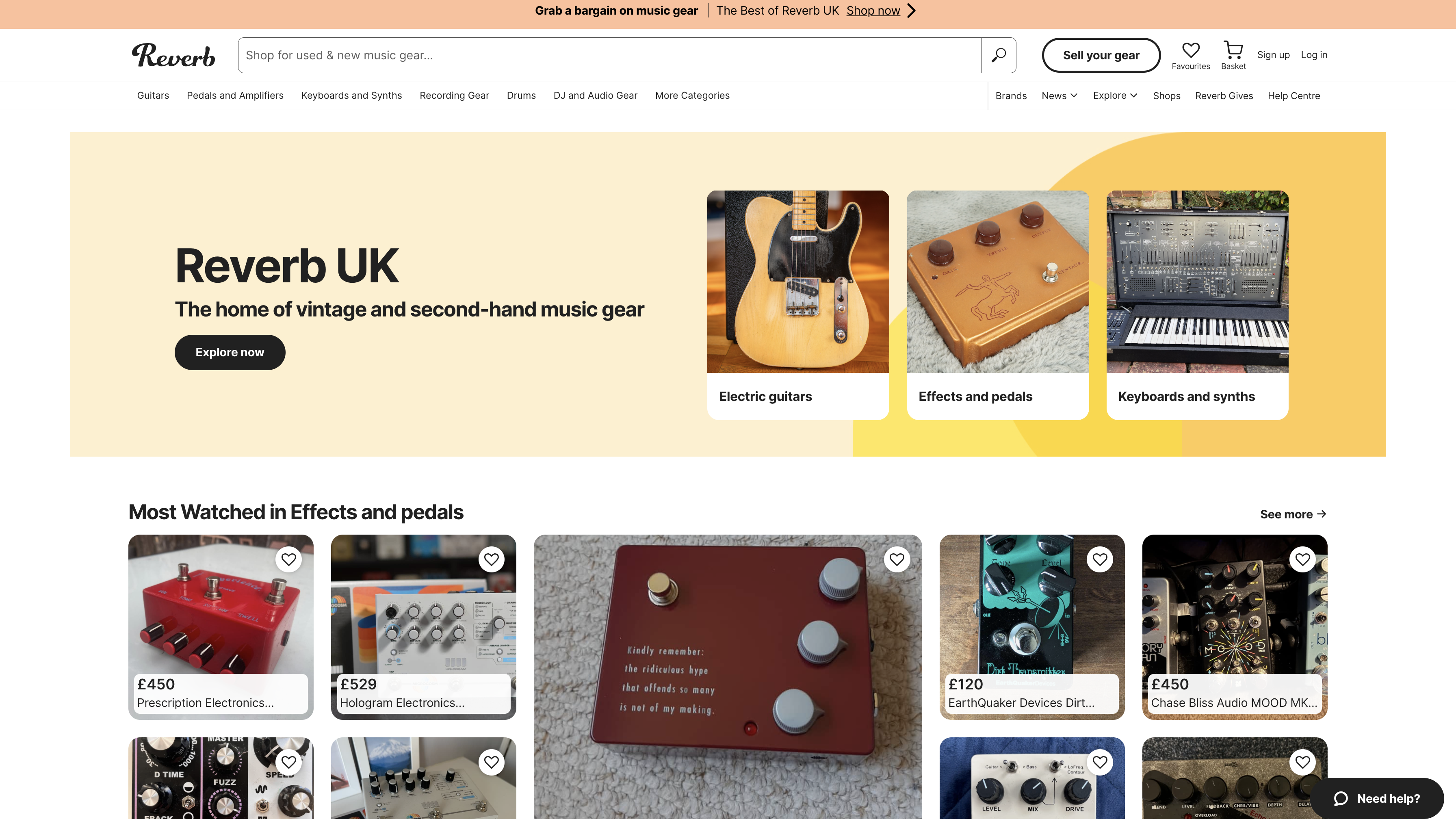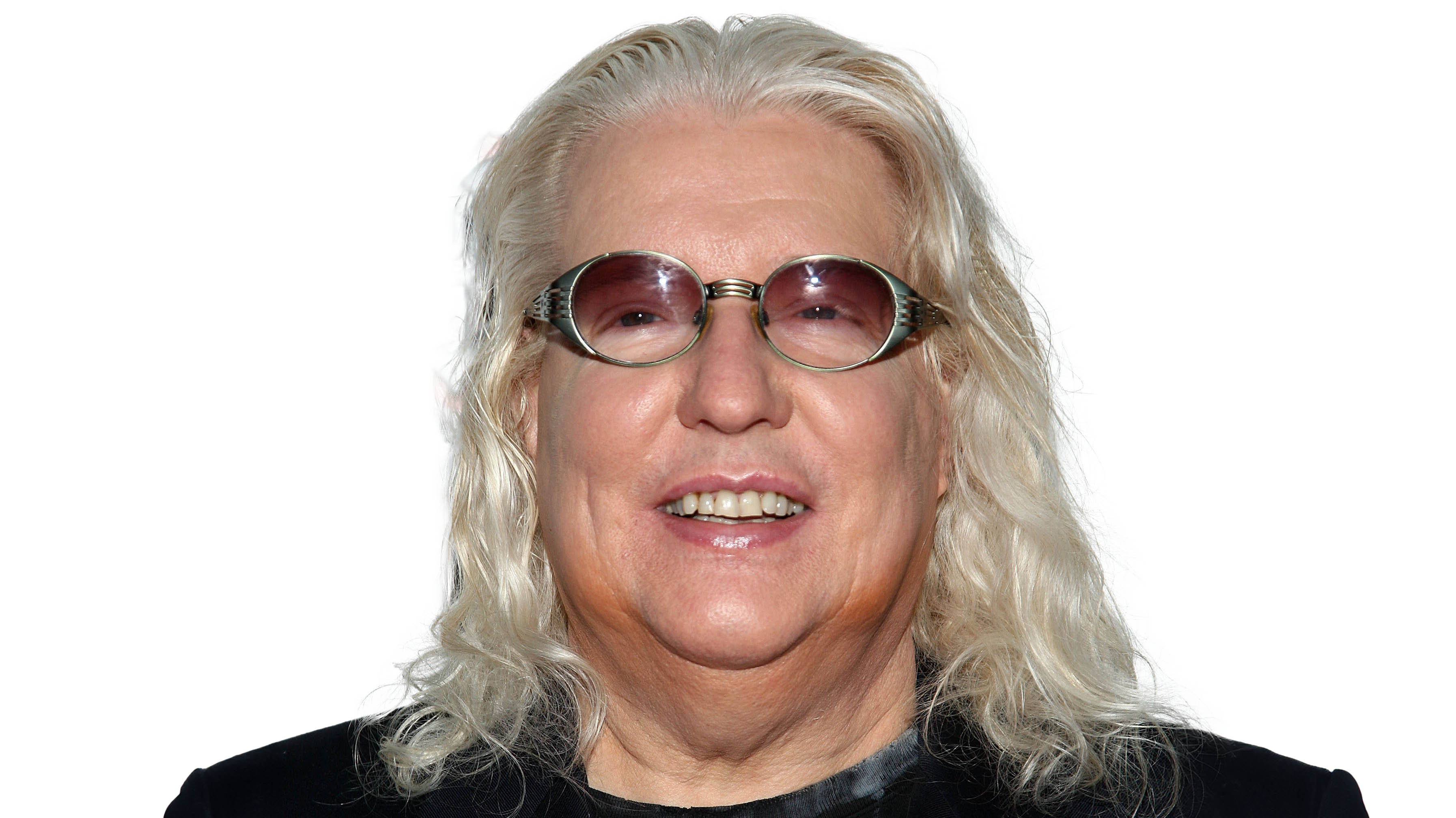“The way I use them while listening to music, they don’t sound like hearing aids. They just sound like the ears I used to have”: Session ace Tim Pierce on dealing with hearing loss as a pro musician and how hearing aids changed his life
Pierce says years of high stage and studio volumes had taken their toll but Widex SmartRIC hearing aids have restored his hearing, helping him in conversation and when dialling in a tone
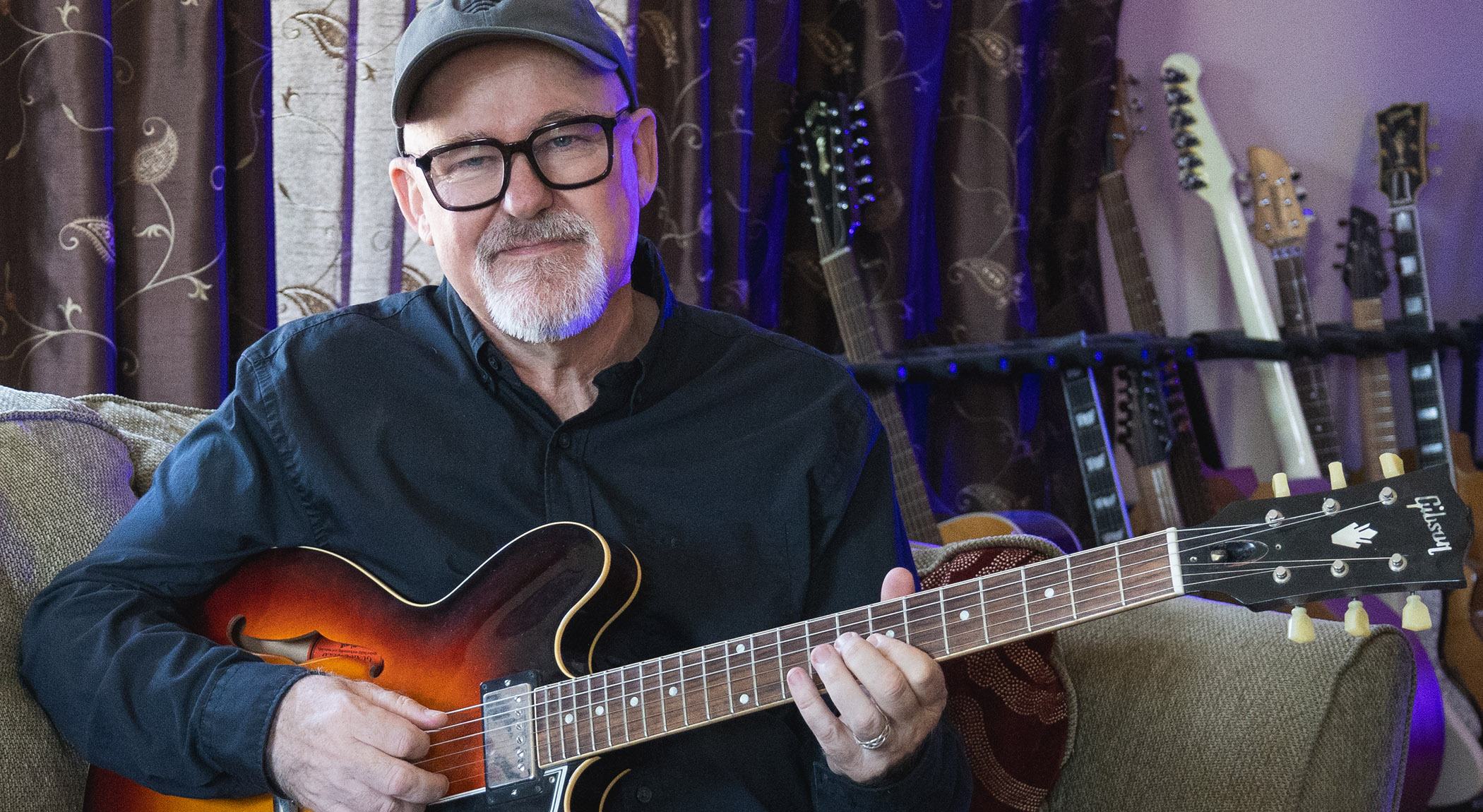
When legendary session pro Tim Pierce describes music as “a high-risk business” for your hearing he is speaking from experience.
“I listened to a lot of loud guitar amps starting from the age of 12 and I haven’t really stopped,” he says. “And then in later years, being onstage with a drummer, the cymbals were a real source of damage over the years.”
Pierce’s resumé takes some beating. He played on Michael Jackson’s Black Or White. He played the solo to Bon Jovi’s Runaway. His long-association with Rick Springfield has shifted a ridiculous number of units and he has been booked to track guitars for the likes of Tina Tuner, Miley Cyrus, Crowded House, Beth Hart, Meat Loaf, Rod Stewart and many more
Joining MusicRadar via video from his home studio in LA, which is pretty much just as you will find him on Pierce's YouTube channel, only in a 4:3 aspect ratio, Pierce says he always knew that he was going to need hearing aids at some point. “I just didn’t worry about it,” he admits. “You kind of feel like you’re invincible and just keep moving forward.”
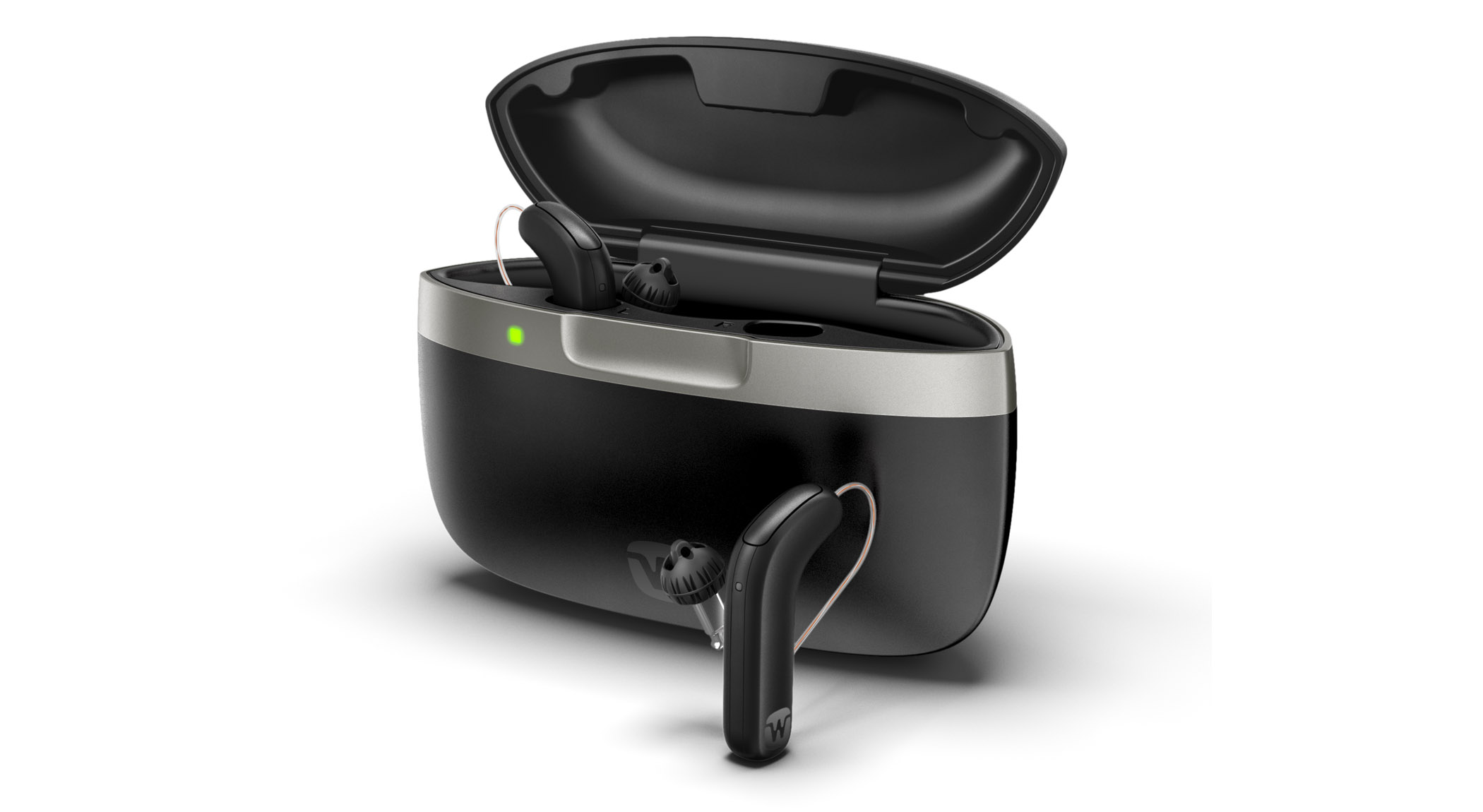
Pierce had tinnitus since he was a little kid, something he thinks could have been triggered from asthma. Ever since picking up the guitar, aged 12, he has been exposed to noise, be it from the punishing high-end splash from his amp, the drummer’s cymbals or cranking up his studio headphones during sessions – something that he believes was “one of the most damaging things” for his hearing.
He once described hearing loss was “the price of admission” for being a pro musician, and he is not alone.
According to the Hearing Health Foundation, musicians are four times more likely to develop noise-induced hearing loss. UK charity Help Musicians reports that 40 per cent of pro musicians have experienced some degree of hearing loss.
Get the MusicRadar Newsletter
Want all the hottest music and gear news, reviews, deals, features and more, direct to your inbox? Sign up here.
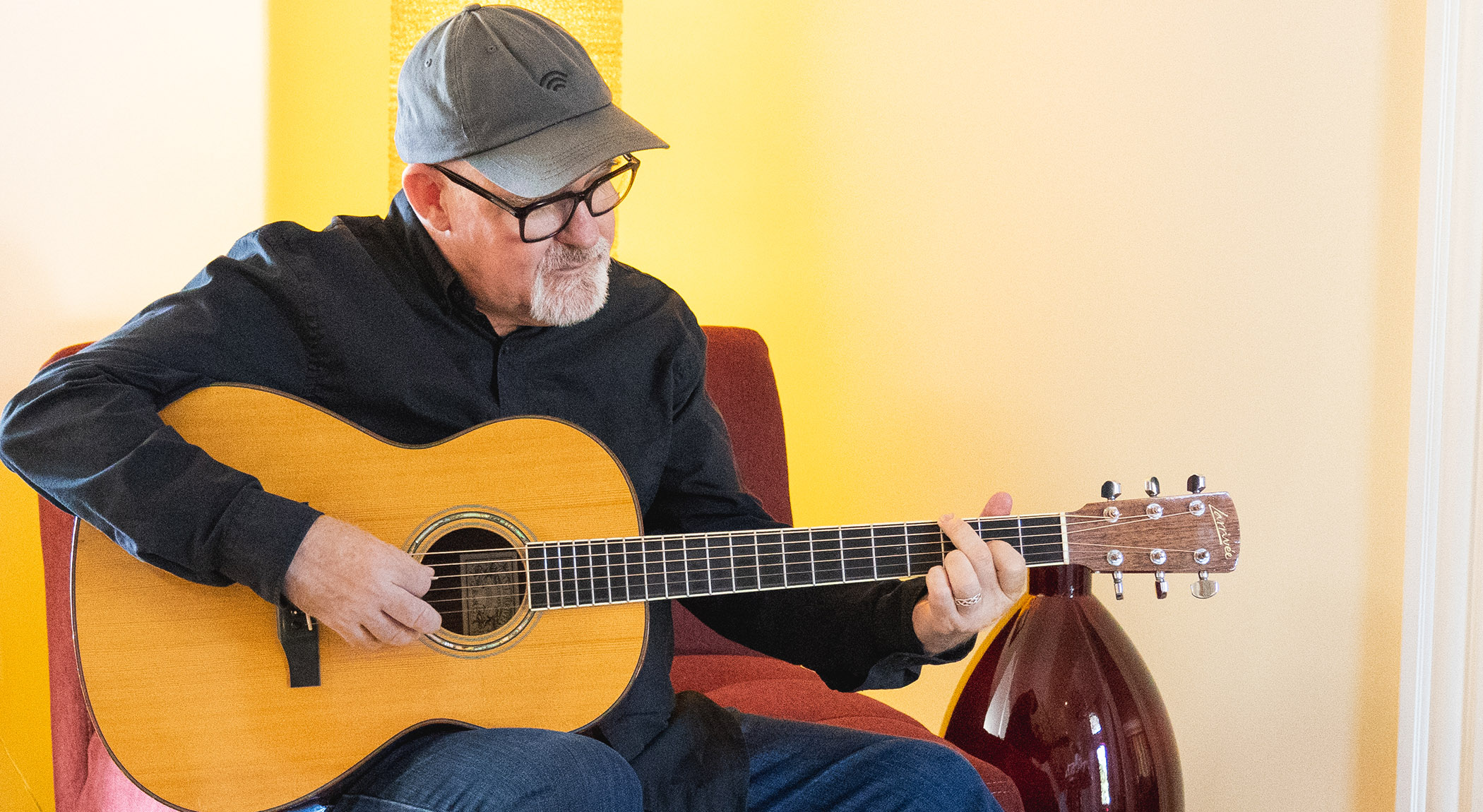
There are numerous high-profile examples of artists whose hearing has been damaged at the workplace. Paul Gilbert has spoken about his condition; there are some frequencies he struggles to hear.
Most famously, AC/DC frontman Brian Johnson had to sit out the band’s Rock Or Bust Tour in 2016, with Axl Rose sitting in for him until he, too, found an in-ears device to help him.
Pierce argues that it is time musicians with hearing loss followed suit and use a technological solution to address what is ultimate medical issue – but also a musical issue, too. Our ear is the most important part of our signal chain.
An endorsee of Widex SmartRIC hearing aids, he says they have restored his hearing to how it was when he was younger.
I was listening to 5.1 mixes with the Widex in, and just the experience of being in the centre of all this music was amazing
“My quote, and it’s real, is that it makes me feel like I have the ears that I have as a teenager,” he says. “So I am hearing all the frequencies I still have. It’s just bringing in the frequencies that I am missing, and if I turn them up just a little bit, in the early stages of amplification on the app, I don’t even know I am wearing hearing aids.”
Pierce says hearing loss had made him more introverted. Conversations with a group of people were a challenge. He would have to speak to people one-to-one. A crowded restaurant was a nightmare. To lapse into the parlance of new-age wellness, using hearing aids has made him more present.
“The effect is it makes me feel more awake,” he says. “It makes me feel more alert. I engage people better. Conversations go quicker and smoother. If I am in a crowded restaurant, and I want to hear somebody across from me, I’ll turn them up and I’ll set the EQ for speech, and even change the directionality of them so that I can hear somebody’s voice.”
He also believes it makes him a better grandfather.
“In the case of my grandson, he trusts me more because I am not asking him twice what he’s saying, and I am responding as quickly as he speaking,” says Pierce. “Because kids are quick! I’m responding just as quickly as he is to everything he is saying. It is a pretty profound thing.”
The Widex SmartRic hearing aids that Pierce uses are designed for all environments, the restaurant, studio, and stage alike, and users can tailor their performance via the Widex Moment app. This is where Pierce can set it for conversations, boosting voices in the mix. But it’s also where he can set them for listening to music, and for performing it.
He says they help him dial in an electric guitar tone just as long as he is mindful of the frequencies that he is boosting. The mix is crucial.
“The way I have them set I can really boost the frequencies, and that is an exaggeration that will not create a real picture of what’s going on,” he says. “As long as you don’t exaggerate the amplification that’s in the system – which is great to have – as long as you just crank it up a little bit, you can get a real picture of what you are actually listening to.”
Pierce started using hearing aids around a year ago. His audiologist told him his hearing was worse in one ear than the other but he could have muddled through. It was a choice. Ultimately, he was sold on the benefits.
When you look around an everyone is wearing some form of in-ear device, earbuds for listening to podcasts, music, talk radio, whatever, it’s part of the culture, and the Widex SmartRic devices are every bit as discrete.

“I am really kind of an evangelist for people with any hearing issues getting these things,” he says. “It helps my brain. I was in a 5.1 situation with a couple of amazing engineers and producers, Will Kennedy and Matt Wallace, and I was listening to 5.1 mixes with the Widex in, and just the experience of being in the centre of all this music was amazing. The way I use them while listening to music, they don’t sound like hearing aids. They just sound like the ears I used to have.”
For more from Tim Pierce, subscribe to his YouTube channel. For more information on Pierce’s SmartRic system, see Widex.
Prevention is always better than the cure: whether you play for fun or to put food on the table, it's vital to protect your hearing. See MusicRadar’s guide to the best earplugs for musicians.
They have come a long way from the squidgy foam freebies you get at venues. Noise reduction doesn't have to kill your enjoyment of the music.
Jonathan Horsley has been writing about guitars and guitar culture since 2005, playing them since 1990, and regularly contributes to MusicRadar, Total Guitar and Guitar World. He uses Jazz III nylon picks, 10s during the week, 9s at the weekend, and shamefully still struggles with rhythm figure one of Van Halen’s Panama.
“It is ingrained with my artwork, an art piece that I had done years ago called Sunburst”: Serj Tankian and the Gibson Custom Shop team up for limited edition signature Foundations Les Paul Modern
“The last thing Billy and I wanted to do was retread and say, ‘Hey, let’s do another Rebel Yell.’ We’ve already done that”: Guitar hero Steve Stevens lifts the lid on the new Billy Idol album





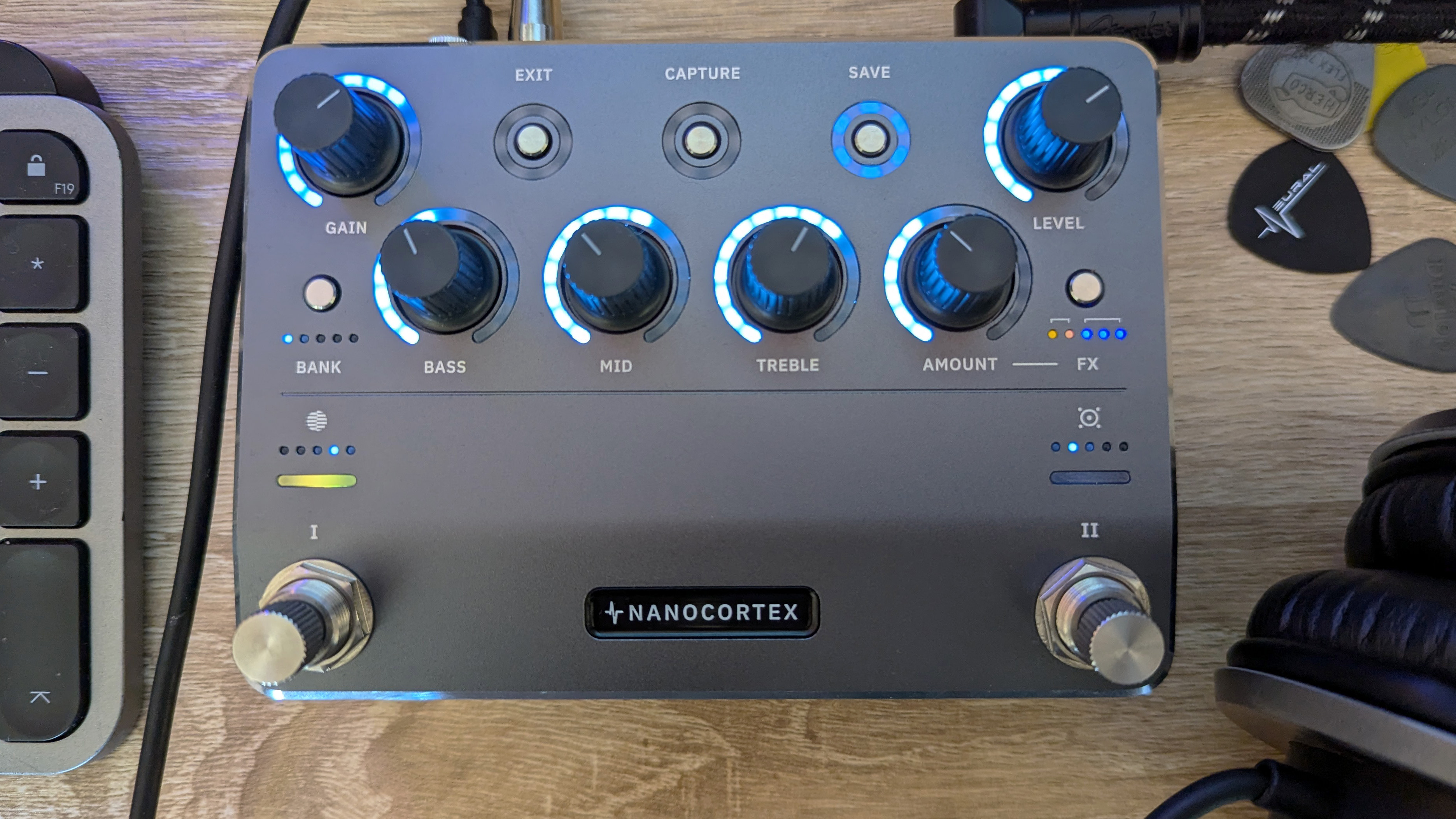
![Gretsch Limited Edition Paisley Penguin [left] and Honey Dipper Resonator: the Penguin dresses the famous singlecut in gold sparkle with a Paisley Pattern graphic, while the 99 per cent aluminium Honey Dipper makes a welcome return to the lineup.](https://cdn.mos.cms.futurecdn.net/BgZycMYFMAgTErT4DdsgbG.jpg)
